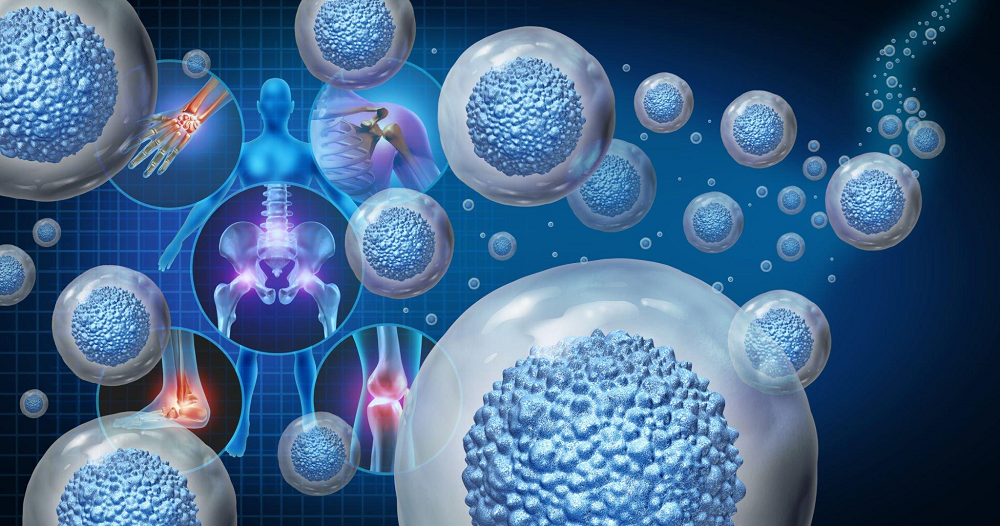A typical illness that weakens your joints is arthritis. It may result in inflammation and discomfort, making it difficult to continue being active or move. There are different types of Arthritis. Every type has distinct effects and may require a different course of action. Although arthritis typically affects older people, it can also affect teens and children.

Image Credit: https://www.istockphoto.com/vector/cells-under-a-microscope-research-of-stem-cells-cellular-therapy-cell-division-gm1290308780-385738341?phrase=Stem%20Cells
The joints of the body where arthritis is most prevalent are the hands, feet, hips, and lower back. Various arthritis types cause different symptoms. Each person experiences them differently, varying substantially in severity. Joint discomfort and pain may be persistent or intermittent. The usual signs include pain, swelling, redness, stiffness, warmth, and tenderness.
You may find it hard to carry out daily duties if you have severe arthritis, especially if it affects the arms or hands. You could find it challenging to sit up straight or walk comfortably if you have arthritis in a weight-bearing joint. Over time, joints may lose their position and structure. Therefore, it is essential to seek out a specialist as soon as possible.
Osteoarthritis is the most prevalent kind of arthritis, affecting around 130 million individuals globally. With promises of pain alleviation, the development of new cartilage to restore damaged cartilage, and the restoration of joint function, stem cells are promoted as the miracle treatment for arthritis.
If you are convinced that you need stem cells to treat arthritis, then you must first consult with an expert orthopaedic surgeon. They will suggest the best way to treat your joint injuries and also suggest treatment plans to slow down their deterioration. The clinic that you choose must provide honest, transparent, and clinical precision while adhering to the highest professional standards.
What are Stem Cells?
Stem cells are indistinct cells that can multiply indefinitely to maintain a constant population or convert into any other form of human cell. Because of this, they have come to be regarded as potential wonder treatments for any sickness requiring the replacement of worn-out or dead tissue. Additionally, they discharge signalling molecules that promote mature cells’ proliferation and wound healing.

Image Credit: https://www.istockphoto.com/photo/stem-cell-therapy-gm1316185886-403985993?phrase=Stem%20Cells
Stem Cells for Arthritis:
- To aid in the regeneration of cartilage, stem cells are being tested as experimental treatments.
- Stem cells are injected into the arthritis-affected joint.
- Many doctors employ medical imaging, like ultrasound, while giving stem cell injections to ensure that cells are delivered exactly to the region of cartilage injury.
- Mesenchymal stem cells (MSCs) can go to injury sites or inflamed areas of the body and produce a variety of restorative factors.
- MSCs are acquired from umbilical cord blood.
- These can improve the formation of supporting tissue and cartilage, which will improve tissue repair.
- They additionally have further subtler impact. For example, they can prevent an overactive immune response and lessen the severity of inflammation.
Other Non-Surgical Treatments for Arthritis:
- Painkillers and anti-inflammatory drugs may help with arthritic symptoms.
- Taking injections.
- Physical therapy can help improve range of motion, strength, and mobility. Further, the therapists can teach you how to alter your routines to lessen arthritis symptoms.
There are no established medical standards that specify who is eligible for stem cell treatment for arthritis. The choice of who receives stem cell therapy is now up to patients and physicians to decide.











